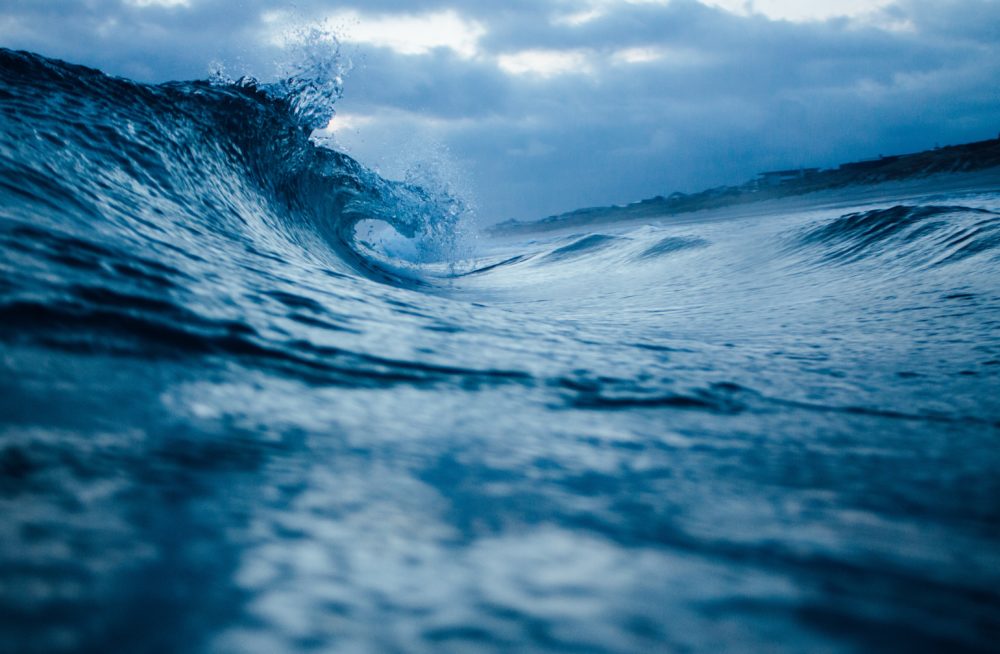It can feel so overwhelming to experience a wave of big emotions. And sometimes, we respond by shutting down. In other words, we hold a protest.
Sometimes we protest by demanding that they go away, or at least go underground. Other times we choose to avoid them, ignore them, reject them. All too often, we tell ourselves all the reasons why we should not be feeling them, and heap shame on our heads. (As if we don’t have enough to deal with already.) We tell our emotions they aren’t wanted here.
When we protest our emotions, we are basically refusing to listen to our life. We become like the grumpy old neighbors who put out a big “No Trespassing” sign, but we do it on the lawns of our very own hearts.
You don’t need me to tell you that this doesn’t work. Protesting our emotions does nothing to help us work with them and through them, because we refuse to even acknowledge them. What we shove underground will come back up, often in destructive ways. What we ignore will continue to nag us, often louder and louder until we’re given no other choice. All those stories we tell ourselves only create more emotions- ones of shame and guilt and resentment and frustration and self-pity and anger and on and on.
So, instead of emotionally protesting, what if we chose instead to listen to our emotions, to acknowledge them, to allow them to be present (since they’re already there, being present)?
What if we chose to emotionally process, rather than emotionally protest?
When we emotionally process, we choose to listen to our life. We honor whatever we’re experiencing by just saying yes to the reality of whatever is coming up, and however it’s making us feel.
One technique I’ve found helpful is to envision my emotions as small children. I often tell my daughter, who has a huge heart for lost dogs, to treat her emotions like she would a lost dog. When we see our emotions in a way that opens our hearts to compassion, we turn from being critical to just being a good caretaker. We squat down and open our arms and offer a hug, or a hand, or a treat. We offer presence. We offer safety.
Seeing emotions as small children or lost puppies or stray cats gives us permission to turn off the parts of our brain that jump to judgment. This isn’t the time for judgment. Our first reaction to emotions is best when it’s compassion. When it’s love, acceptance, safety, presence.
Once we do this, we get some space around whatever big thing we’re feeling. We realize, by putting ourselves in a caretaker role, that this emotion doesn’t define us. It doesn’t own us. But it is entrusted to our care.
Only then, after accepting, and giving space, and offering ourselves compassion, do we move toward being ready to take wise action. This is when we are best equipped to decide what to do with what we’re feeling. A lot of the time, this simply means letting the emotion go. Just like a child who gets hurt on the playground, we offer comfort just long enough for them to feel ready to go back out there again. Our emotions come and go. We don’t own them, so we let them come, and we let them go.
This week, I’m learning to practice this in my own life after learning, much to my surprise, that I tore my ACL. I’ve been riding the waves of emotion–sadness, frustration, and all the rest–and just doing my best to show up to my life. What I don’t want to do is shut down, or protest, or be a bad caretaker of my own emotional landscape. In the spirit of practicing discipline, I’m trying to avoid doing harm by listening to my life and offering presence and space for whatever comes up. Like everything else, it’s practice.
Whatever is coming up for you this week in your life, I hope you will be present to it and listen to it. You deserve compassionate care-taking.




